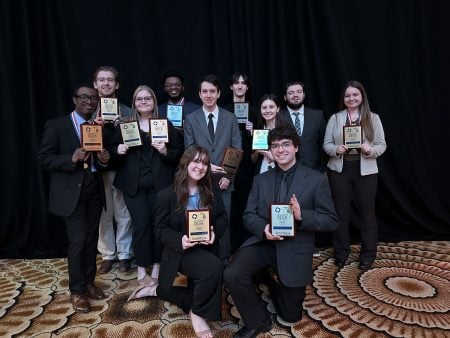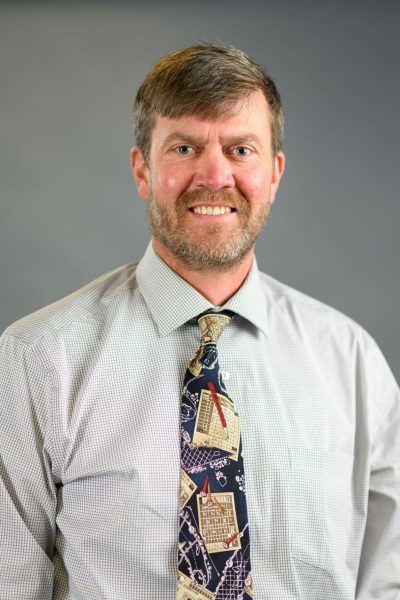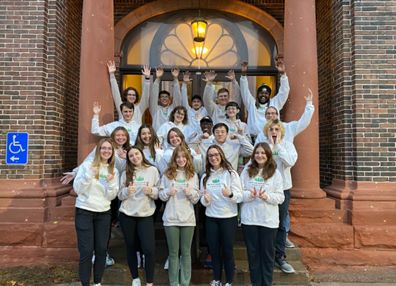by Roger Woods, College of Business
Students in OSM4350 Advanced Project Management, led by Roger Woods (COB), participated in the 12th annual Western Michigan Project Management Institute (WMPMI) collegiate project management competition — known as THEProject — where they took home first and second place.
The teams gave their final presentations Monday (April 8) in Hudsonville, Michigan.
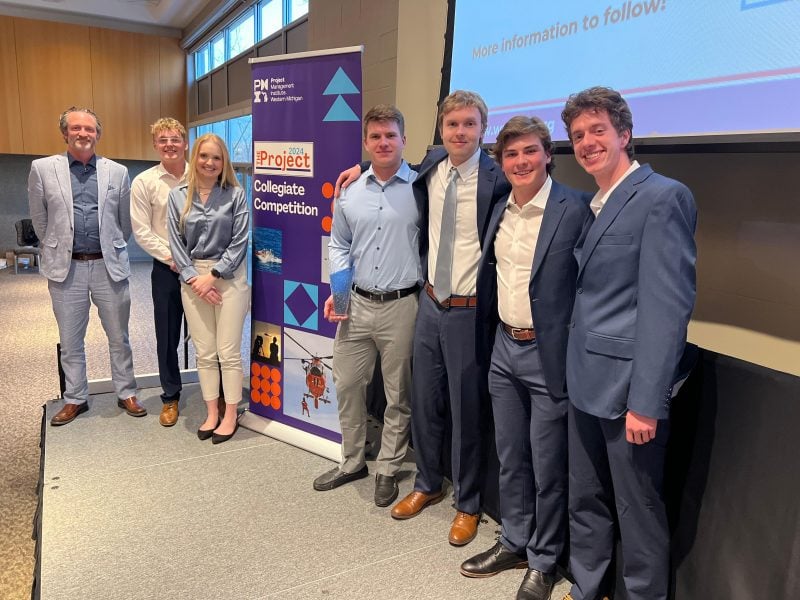
Team Name: Anchor Management
Photo Left to Right: Travis Puesel, WMPMI THEProject Director with MTU Students: Easton Armstrong, Meredith Raaslo, Jacob Maurer, Blake Lewis, William Zinser, Alexander Bos
Students on the winning teams include:
- First-Place Team — Anchor Management:
Jacob Maurer (team lead), Blake Lewis, Easton Armstrong, Alex Bos, Will Zinser and Meredith Raasio - Second-Place Team — Lake Superior Salute:
Gregory Lapetina (team lead), Connor Zavislak, Ethan Kennedy, Maggie Gallup, Ashley Haen and Simon Karnoe
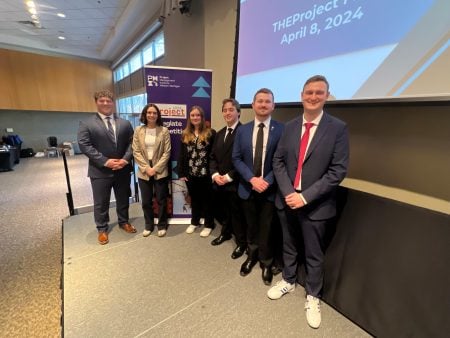
Team: Lake Superior Salute

